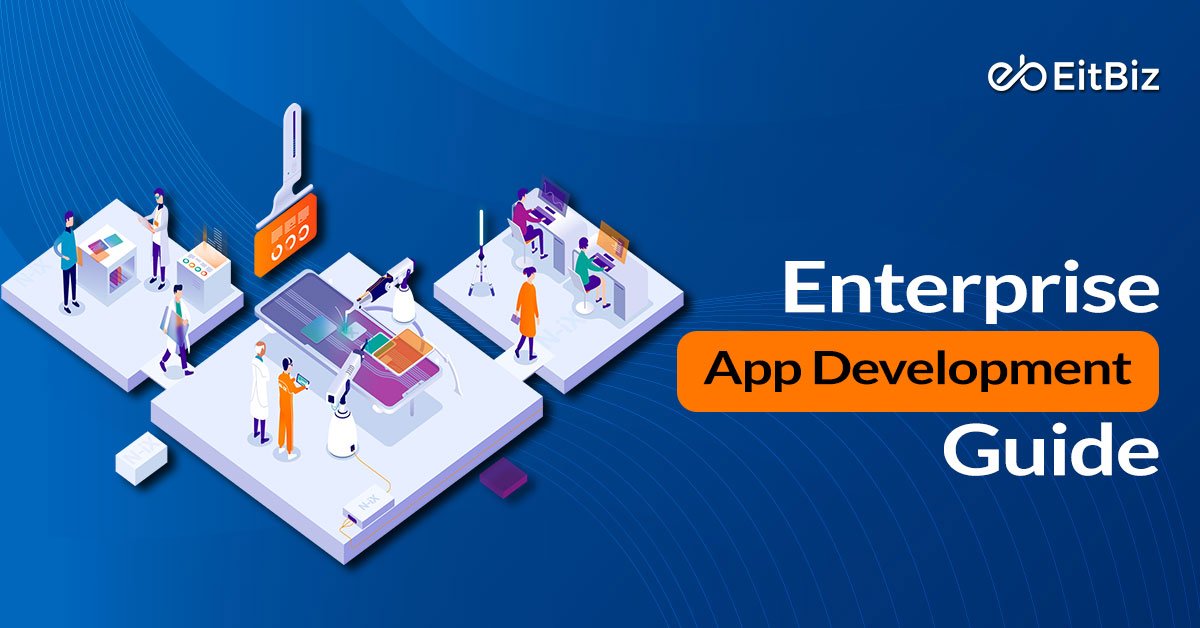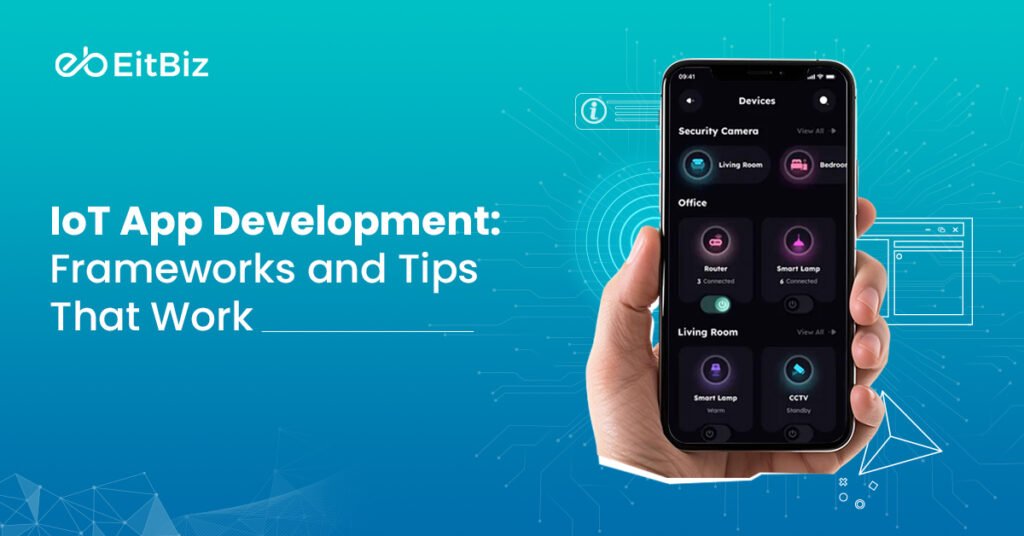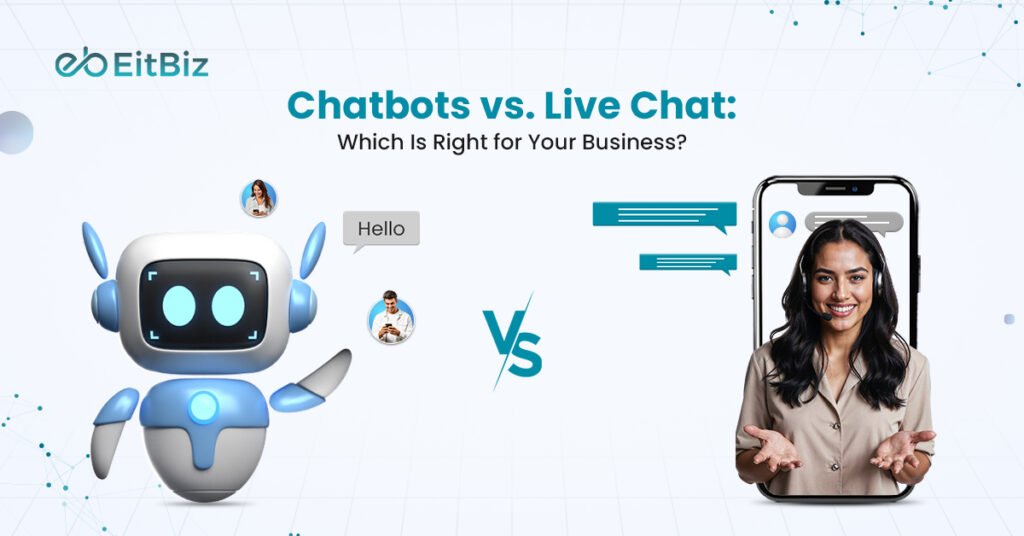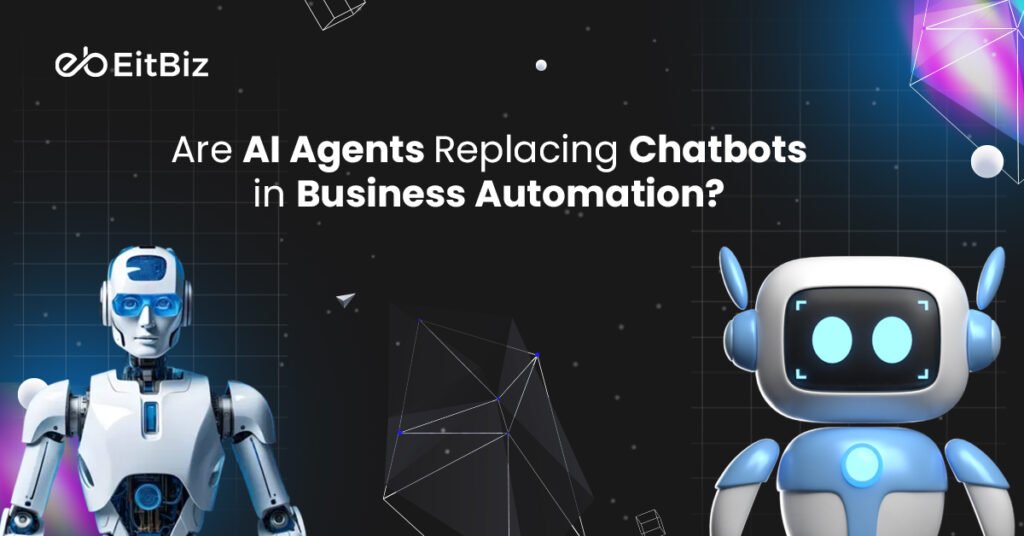Running a business isn’t a cakewalk, especially when you’re in a big-scale organization!
From managing multiple tasks at once to maintaining customers, there’s a lot on the plate to take care of!
But sometimes, it gets frustrating to save time and minimize upfront expenses, right?
This is where the importance of enterprise app development comes in!
Enterprise application development refers to building dedicated software apps that are designed for large-scale enterprises to attract customers and convert them into potential customers.
According to an industry report, the global enterprise application market is expected to grow to $527.40 billion by 2030.
Sounds interesting, doesn’t it?
Excited to build an enterprise app? If so, let’s dive into the ins and outs of enterprise app development.
What is Enterprise Application Development?
In layman’s language, enterprise app development refers to the process of building enterprise-grade apps that enable organizations to store, manage, and analyze data to boost business efficiency. These kinds of apps are specifically built for MNCs and corporate giants where lots of data are involved or deal in large-scale production of goods.
Since enterprise apps are complex and require extensive time and effort, hiring a professional enterprise app development company is a must.
Speaking of the enterprise apps, they are incredibly popular, as well. The best part is that they are showing no signs of slowing down.
Important Facts & Statistics Related to Enterprise App Development
Let’s take a look at the key facts and statistics related to building enterprise apps.
- More than 70% of IT professionals say that it takes beyond an average time to build an enterprise app.
- The IT expenditure on enterprise software is expected to grow by 11.9% every year.
- Gartner says that up to 70 percent of new enterprise applications will be built using low-code and no-code development platforms by the next 1-2 years.
What are the Types of Enterprise Mobile App Development?
Enterprise applications are large-scale software systems that support the core functions of a business or organization. These applications are designed to handle critical business operations such as resource management, data processing, decision support, and communication across various departments. They are typically complex and integrate with various systems and databases. Below is a more detailed look at the different types of enterprise applications:
1. Enterprise Resource Planning (ERP) Systems
ERP systems are integrated software platforms used to manage and automate the core business processes within an organization. These processes typically include finance, human resources, procurement, manufacturing, supply chain, and inventory management.
Key Features:
- Data Centralization: All departments share a single database, which reduces data redundancy and improves accuracy.
- Business Process Automation: Streamlines business processes such as order processing, inventory tracking, and billing.
- Real-time Analytics: Offers tools for tracking performance and making data-driven decisions.
Examples: SAP, Oracle ERP, Microsoft Dynamics.
2. Customer Relationship Management (CRM) Systems
CRM systems are designed to manage an organization’s interactions with current and potential customers. These systems help businesses track customer behavior, manage customer support, and improve sales and marketing efforts.
Key Features:
- Contact Management: Centralizes customer contact information, including emails, phone numbers, and purchase history.
- Sales and Marketing Automation: Automates marketing campaigns, lead generation, and follow-ups.
- Customer Support Tools: Includes tools for managing customer service requests and complaints.
Examples: Salesforce, HubSpot CRM, Microsoft Dynamics CRM.
3. Supply Chain Management (SCM) Systems
SCM systems are used to oversee and streamline the movement of goods and services throughout the supply chain. These applications help organizations manage suppliers, track inventories, process orders, and ensure timely delivery of goods.
Key Features:
- Inventory Management: Tracks stock levels in real time, ensuring that businesses maintain optimal inventory levels.
- Logistics and Distribution: Manages warehousing, transportation, and order fulfillment processes.
- Supplier and Vendor Management: Helps track relationships with suppliers and optimize procurement strategies.
Examples: SAP SCM, Oracle SCM Cloud, Infor SCM.
4. Human Resource Management Systems (HRMS)
HRMS or HCM (Human Capital Management) systems are used by organizations to manage their human resources functions, such as recruitment, payroll, performance management, and employee benefits.
Key Features:
- Employee Database Management: Stores and organizes employee data such as personal information, work history, and performance.
- Payroll and Benefits Administration: Automates payroll calculations, tax filings, and benefits management.
- Recruitment and Onboarding: Facilitates job postings, candidate tracking, and employee onboarding.
Examples: Workday, ADP Workforce Now, BambooHR.
5. Business Intelligence (BI) Systems
BI systems are used for data analysis and reporting, helping businesses make informed decisions based on data insights. These applications collect, process, and analyze data to generate reports and dashboards that provide an overview of key business metrics.
Key Features:
- Data Integration: Integrates data from various sources (ERP, CRM, etc.) to provide a comprehensive view.
- Data Visualization: Uses charts, graphs, and dashboards to present complex data in an easy-to-understand format.
- Predictive Analytics: Helps forecast future trends based on historical data and patterns.
Examples: Tableau, Microsoft Power BI, Qlik Sense.
6. Content Management Systems (CMS)
A CMS is used to create, manage, and store digital content. It is especially valuable for businesses that rely on creating and publishing large volumes of content, such as blogs, articles, or product information.
Key Features:
- Content Creation and Editing: Provides tools for creating and editing content without needing advanced technical knowledge.
- Version Control: Tracks changes to content, allowing teams to manage updates and edits efficiently.
- Content Distribution: Distributes content across websites, social media, and other digital platforms.
Examples: WordPress, Drupal, Adobe Experience Manager.
Incredible Benefits of Enterprise App Development

Here is a list of the salient benefits of enterprise app development services.
Increased Efficiency
One of the biggest benefits of building an enterprise application is that it provides an unmatched level of business efficiency. Since tasks are automated based on the target audience, these apps may ease the overall operations to save abundant time and effort.
Cost Savings
Since enterprises work on a big scale, it could be potentially daunting to manage each operation or task. But when you have a dedicated business app, it may ultimately eliminate the risk of manual errors and reporting. Furthermore, it may also curb the consequences arising out of manual operations.
Optimized Resources
One of the major troubles in a large-scale company is that employees spend most of their time sending reports and replying to emails, which could hamper productivity. However, when you have a solid enterprise app, your workers can focus on other core operations of the business.
Data-driven Decision-Making
It is no surprise that collecting, refining, and reviewing data may not only exhaust your time but also everybody’s effort. Thanks to the amendment of the enterprise app, businesses can easily collect real-time data which helps them to make fruitful decisions and help them stay ahead of the competition.
Mobility and Remote Access
Communication has always been a driving factor in determining the success of an organization. Gone are the days when it was hard to communicate with each other in an organization due to lack of resources. Technology has changed the way we interact. With a dedicated enterprise app, businesses can easily connect to their employees via smartphone, tablet, or web app. Thus, it helps stay connected with each other and facilitates increased connectivity and productivity.
But the question is still intact- How to build a solid enterprise app? What are the steps involved in enterprise app development?
What are the Popular Enterprise Application Examples?
Here are some of the popular enterprise application examples.
#1. Salesforce
It acts as a leader for the enterprise sales team and seamlessly connects sales, marketing, eCommerce, and customer representative teams.
#2. SAP Concur
It is a popular example of enterprise application development which connects travel, expense, and invoices which enable businesses to focus on their end-to-end spending.
#3. Slack
One of the major enterprise application examples is “Slack” which allows people to work together more effectively and most importantly, in a secure environment.
#4. JIRA
It is a popular work management tool that collects requirements and easily monitors bugs and issues. If you’re in a business that involves multiple projects, look no further than “JIRA”.
#5. HubSpot
It offers marketing automation to deploy targeted marketing campaigns and engage your audience via social media, SMS, digital ads, and email.
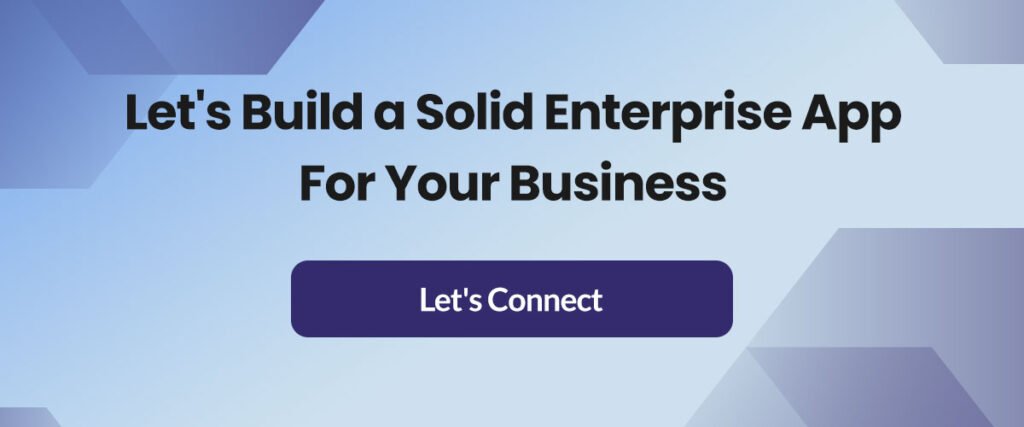
What are the Popular Enterprise Application Development Frameworks?
Let’s take a look at the major enterprise app development frameworks to consider in 2025.
High-Level Programming Languages or “No Frameworks” Approach
This kind of enterprise application development framework describes a method that does not rely on frameworks in a scenario where traditional approaches may not be effective. It offers a wide range of possible applications and provides a high level of manageability and flexibility, allowing for innovative and adaptable solutions. This level is incredibly helpful for building frameworks which could help enhance development speed to an unprecedented scale.
Narrow-Focused Frameworks
Another major enterprise application development framework is “Narrow-focused frameworks” which come with the highest number of representatives. The purpose of all these tools is to simplify development within a specific, relatively small area by increasing the level of abstraction and offering a clear API for its domain. Integrating ORM, Middleware, UI, Messaging, and other types of frameworks is a complex task developers can achieve a balance between fast development speed and a high level of flexibility combined.
Code Generators/Aggregators
It is one of the popular frameworks that is designed to expedite the initial stages of application development. It configures your application using Narrow-focused Frameworks and generates a Spring-based application with an Angular-based user interface. However, after the startup stage, using such frameworks may not provide significant value.
High-Level & Full-Stack Frameworks
It is another popular enterprise app development framework which may help you build full-stack enterprise applications faster. Speaking of its architecture, it offers a complete architecture for building 3-tier apps and comprises essential features such as file storage, soft deletion, and data-aware components. Whether you want to build ERP-like systems or custom software, this class is the most appropriate. But the question is still intact- How to build an enterprise app? What are the steps involved in enterprise app development?
What are the Potential Challenges Involved in Enterprise Application Development?
Enterprise application development is a complex process due to the scale, critical functions, and integration needs of these systems. Developing these applications requires careful planning, robust architecture, and ongoing management. Here are some of the primary challenges involved in enterprise application development:
1. Scalability Issues
Enterprise applications need to support a growing number of users, data, and transactions as a business expands. Developing an application that can scale seamlessly without compromising performance is challenging.
Challenges:
- Designing infrastructure that handles increasing workloads.
- Ensuring performance remains consistent with rising data volumes.
- Optimizing databases and server architecture to avoid bottlenecks.
Solutions:
Cloud-based solutions, microservices architecture, and load balancing can help manage scalability.
2. Integration with Existing Systems
Most enterprises rely on legacy systems or other third-party software (ERPs, CRMs, etc.). New applications must integrate seamlessly with these systems, which may have outdated technology stacks or complex architectures.
Challenges:
- Compatibility with legacy systems that may not support modern APIs.
- Maintaining data consistency between different systems.
- Managing different data formats and communication protocols.
Solutions:
Middleware, APIs, and enterprise service buses (ESBs) help facilitate integration and communication between systems.
3. Security and Data Privacy
Given the critical nature of enterprise data, security is paramount. Enterprise applications handle sensitive information such as financial data, employee records, and customer information, making them prime targets for cyberattacks.
Challenges:
- Ensuring protection against cyber threats (e.g., ransomware, phishing).
- Compliance with regulations (e.g., GDPR, HIPAA).
- Implementing secure authentication, encryption, and access control.
Solutions:
Adopting encryption, multi-factor authentication (MFA), and robust access control policies can enhance security. Regular security audits and vulnerability assessments are essential.
4. Performance Optimization
Enterprise applications must operate efficiently under heavy loads and provide real-time data processing and response times.
Challenges:
- Managing high transaction volumes without latency.
- Optimizing database queries and ensuring efficient data retrieval.
- Reducing downtime and ensuring high availability.
Solutions:
Performance tuning, caching strategies, and load testing can help ensure applications meet performance benchmarks.
5. Maintaining Data Consistency and Integrity
Enterprise applications often work with data from multiple sources. Ensuring that data remains accurate, consistent, and synchronized is a significant challenge.
Challenges:
- Avoiding data duplication and discrepancies.
- Synchronizing data across distributed systems and databases.
- Ensuring data integrity during transactions and updates.
Solutions:
Implementing strong data governance policies, database normalization, and using distributed data management tools can help maintain data integrity.
But the question is still intact- How to build an enterprise app? What are the steps involved in enterprise app development?
Steps Involved in Enterprise App Development
Let us guide you through the brief enterprise application development process.
1. Problem Research
The first and foremost step in building an enterprise app is that you will need to figure out the problems that your business is facing. Once you know the target problem, you can then think about building an app that solves the issue and benefits both your employees and customers. No matter what kind of problem you discover, ensure you keep track of it and hire the best enterprise app development company to handle it with ease.
2. Target Audience Planning
Once you have successfully figured out your core problem, it’s time to identify your enterprise app users and their pain points within the organization. Ensure you conduct multiple brainstorming sessions to plan the app’s features and functionalities so that it may resonate with your target audience. Remember that when you understand what your audience is looking for, you can build a solid enterprise app that not only solves their problems but attracts and converts them into customers.
3. Platform Selection
In the third step, you will need to choose the right app development platform to proceed with the enterprise app development project. Ensure you choose a robust platform that comes with a wide range of features, including authentication, storage, and compliance. If you don’t have time or don’t know how to choose the right app development platform, don’t hesitate to contact the best enterprise app development company and turn your dreams into reality.
4. Wireframing Your Enterprise App Development
Building and deploying an enterprise app without creating a prototype can be a huge blunder. Ensure you spare some time to prepare a rough wireframe that demonstrates enterprise workflow, data structures, and how users will interact. Furthermore, you can even test the look and feel of the app to ensure it aligns with your customers’ needs. For unfiltered feedback, you can keep stakeholders and end users in line.
5. Design, Development, and Testing
It is no secret that building an enterprise isn’t a cakewalk. If you ever try to run into it, you may face more loss than you gain profit. Thus, ensure you hire dedicated developers to kick-start your project. When hiring an app development partner, prioritize their portfolio, client reviews, and expertise. Moreover, you should look into the tech stack that an organization uses. For example, if you’re planning to hire a Flutter app development company, ensure you check how many cross-platform apps they have delivered.
6. App Launch and Maintenance
Last but not least, it’s time to deploy your app and watch the magic! Even after deployment, your job is not done yet! Ensure your app must be updated as per the latest trends and should be free from errors. Since threats are constantly evolving, ensure your app is protected against all kinds of malware attacks. If any new technology comes into play, ensure you efficiently leverage it and incorporate it into the app to give your business a competitive edge.
What is the Development Process Cost for an Enterprise App?
The cost of developing an app depends on several factors. First, the choice of platform—whether it’s Android, iOS, web, or cross-platform—can significantly impact your budget. Hiring the type of full-stack app developers also affects costs. Additionally, the type of app matters; a comprehensive enterprise app will cost more than a smaller, department-specific microapp. The final cost is further influenced by the app’s features, the location of your development partner, and the complexity of the UI/UX design. To get a tailored estimate, you can try our mobile app development cost calculator.
Final Thoughts
So, there you have it! That’s a wrap to the guide to enterprise app development! They not only streamline operations but also support decision-making, boost efficiency, and enhance customer engagement.
Planning to partner with a reliable enterprise app development? If so, look no further than EitBiz! We are a leading custom enterprise app development company in the USA that leverages the latest tech and tools to craft solid, functional, responsive, and scalable apps that grow your business exponentially. Reach out to EitBiz at +1(812)530-6300 or mail us at info@eitbiz.com to discuss your custom enterprise app development needs! We’ll contact you shortly!
